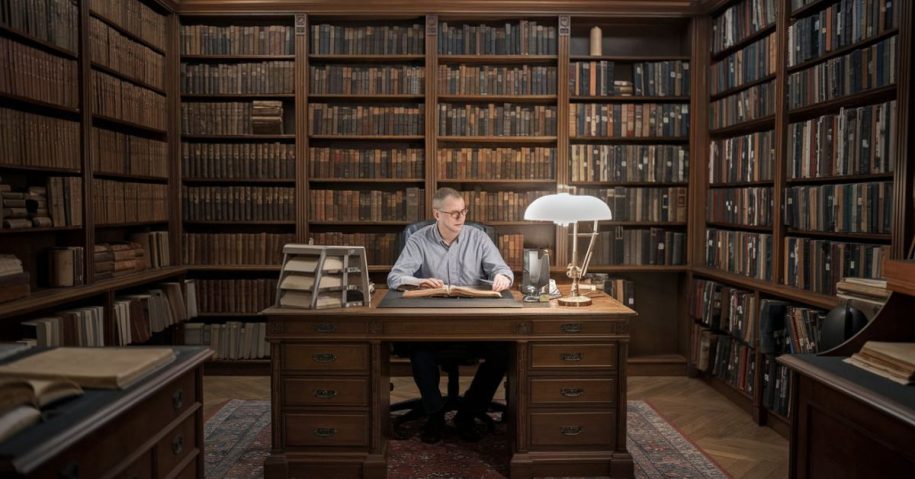Archivist Jobs: A Rewarding Career for History Lovers and Organizers in America
Archivist Jobs are perfect for people who love history and enjoy organizing important information. If you have a passion for preserving documents, photos, videos, or digital files, this could be the ideal career path for you. In the U.S., archivists work in museums, libraries, universities, government agencies, and even private companies. This job offers both variety and the chance to protect valuable records for future generations.
This guide will explain what being an archivist involves, what skills you need, and how to start your career in this fascinating field.
What Is an Archivist?
Archivists are responsible for collecting, organizing, and preserving historical records and documents. They ensure that valuable materials, from centuries-old letters to modern digital data, are well-maintained and easily accessible for researchers, historians, and the general public.
Archivists work with different types of materials, including:
- Paper documents like letters, diaries, and legal records
- Photographs, films, and videos
- Audio recordings
- Digital files like emails, websites, and e-documents
- Artifacts and memorabilia
Archivists do much more than just store these items. They decide which materials are worth keeping, organize them for easy access, and ensure they’re preserved for the long term. For those who love history and enjoy detailed work, this career can be both challenging and deeply satisfying.
What Does an Archivist Do?
Archivists handle a wide variety of tasks, and every day can bring something new. Key responsibilities include:
- Collecting Records: Archivists acquire records that hold historical or cultural importance. These materials might include personal letters, photographs, corporate documents, or government files. Their goal is to ensure these items are preserved and available for future generations.
- Organizing and Cataloging: One of the main jobs of an archivist is organizing the materials they collect. This involves creating systems to classify and store documents so that they can be found easily. Archivists often use special databases to keep track of where everything is located.
- Preserving Records: Preservation is a crucial part of the job. Over time, old documents, photos, and videos can degrade. Archivists use special techniques to protect these materials, such as digitizing fragile items to make them more accessible while keeping the originals safe.
- Helping Researchers: Many archivists work in public spaces like museums or libraries, where they assist researchers and historians. Archivists help them find the materials they need and ensure that the records are handled with care.
- Creating Exhibits: In some settings, archivists also create displays or exhibits that highlight important documents and items from their collections, giving the public a chance to learn more about history.
- Digitizing Archives: As technology advances, archivists are increasingly involved in digitizing records so that they can be accessed online. This helps protect the originals while making information more widely available.
Skills You Need for an Archivist Job
To succeed as an archivist, you need a mix of technical skills, organizational ability, and a passion for history. Here are the most important skills:
- Attention to Detail: You’ll need to be precise and careful. Organizing and cataloging large amounts of information requires a sharp eye for detail.
- Research Skills: Archivists often help researchers and historians find specific information. Strong research skills are essential for locating materials and understanding their historical context.
- Organizational Skills: Managing large collections of documents, photos, and digital files means you must be highly organized. Creating and maintaining systems for easy access is key to this job.
- Technical Knowledge: Today’s archivists need to be comfortable with technology, especially when it comes to using software for cataloging materials and digitizing records.
- Preservation Techniques: Archivists must understand how to properly handle and preserve delicate materials, ensuring they don’t degrade over time.
- Communication Skills: Whether you’re helping researchers, curating exhibits, or writing descriptions for archives, you’ll need good communication skills to explain information clearly and effectively.
How to Become an Archivist
If you’re excited about the idea of becoming an archivist, here’s how to get started:
- Get an Education: Most archivist positions require a bachelor’s degree, typically in history, library science, or a related field. Many archivists go on to earn a master’s degree in archival studies, library science, or museum studies, which can help you stand out when applying for jobs.
- Gain Experience: Internships or volunteer positions at museums, libraries, or historical archives are great ways to gain hands-on experience. You’ll learn valuable skills and build connections that can help you land a job.
- Earn Certification: Certification from the Academy of Certified Archivists (ACA) is a valuable credential that shows employers you’re knowledgeable and serious about your profession. Certification involves passing an exam on archival principles and ethics.
- Build a Portfolio: Document your work throughout your education and internships. A portfolio showcasing your projects and experience can help you stand out when applying for archivist jobs.
- Stay Updated: The field of archiving is constantly changing, especially with the rise of digital records. Keep up with trends in digital preservation and technology through professional organizations like the Society of American Archivists (SAA) and continuing education.
Where Do Archivists Work?
Archivists can work in a variety of places, including:
- Museums: Organizing and preserving historical collections.
- Libraries: Handling special collections or rare books.
- Government Agencies: Managing public records and historical documents.
- Corporations: Archiving business records, legal files, and company history.
- Universities: Preserving academic research, manuscripts, and historical materials.
Conclusion
Archivist jobs offer a unique and fulfilling career for people who love history and are passionate about preserving important records. Whether you’re assisting researchers, organizing historical documents, or ensuring that digital records are accessible for years to come, archivists play a key role in protecting the past for future generations.
If you’re detail-oriented, enjoy organization, and have a passion for history, a career as an archivist in America could be the perfect fit for you. With the right education, experience, and skills, you can make a lasting impact in this rewarding field.
Also Check: Press Association Jobs
Follow us: Facebook














